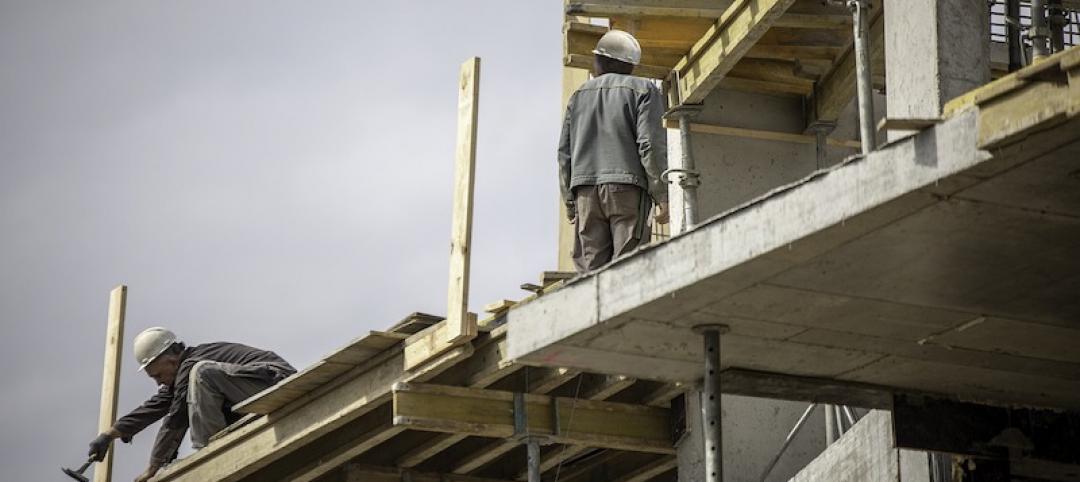Construction employment increased by 27,000 jobs in November, as continuing robust gains in residential categories masked more sluggish increases in nonresidential jobs, according to an analysis by the Associated General Contractors of America of government data released today. Association officials cautioned, however, that pandemic-induced project cancellations and looming tax bills for firms that used Paycheck Protection Program loans to save jobs threaten to undermine future job growth in the sector.
“The construction industry recovered a bit in November, but the future is far from certain for the industry,” said Ken Simonson, the association’s chief economist. “The nonresidential building and infrastructure segments are likely to shed jobs again amid an increase in coronavirus case counts unless Congress acts quickly to provide needed relief.”
Construction employment climbed to 7,360,000 in November, an increase of 0.4% compared to October. However, employment in the sector remains down by 279,000 or 3.7% since the most recent peak in February. The pandemic initially triggered widespread project cancellations and interruptions that resulted in the loss of 1.1 million construction jobs in March and April.
The disparity between residential and nonresidential construction widened in November, Simonson noted. Residential building and specialty trade contractors added 15,4000 jobs in November and have now recouped 96% of the employment losses they incurred in March and April. In contrast, nonresidential construction employment—comprising nonresidential building, specialty trades, and heavy and civil engineering construction—increased by only 11,900 jobs in November and has recovered only 56% of the jobs lost in March and April.
The industry’s unemployment rate in November was 7.3%, compared to 4.4% in November 2019. A total of 732,000 former construction workers were unemployed, up from 428,000 a year earlier and the highest November total since 2012.
Association officials warned that more projects are likely to be canceled amid a new surge in the pandemic. In addition, firms that used Paycheck Protection Program loans to save jobs face an unexpected tax hit because the Trump administration is defying Congressional intent and opting to tax forgiven loans as income. Without tax relief and other needed recovery measures, the officials warned that November’s modest job gains are likely to be fleeting.
“The Trump administration is seeking to undermine the benefits of the Paycheck Protection Program by rewarding firms that saved jobs with a massive tax increase,” said Stephen E. Sandherr, the association’s chief executive officer. “These new taxes, coming on top of greater market uncertainty as coronavirus cases surge, will make it hard for many construction firms to retain current workers, not to mention add new ones.”
Related Stories
Market Data | Jan 23, 2020
Construction contractor confidence surges into 2020, says ABC
Confidence among U.S. construction industry leaders increased in November 2019 with respect to sales, profit margins, and staffing, according to the Associated Builders and Contractors Construction Confidence Index.
Market Data | Jan 22, 2020
Architecture Billings Index ends year on positive note
AIA’s Architecture Billings Index (ABI) score of 52.5 for December reflects an increase in design services provided by U.S. architecture firms.
AEC Tech | Jan 16, 2020
EC firms with a clear ‘digital roadmap’ should excel in 2020
Deloitte, in new report, lays out a risk mitigation strategy that relies on tech.
Market Data | Jan 13, 2020
Construction employment increases by 20,000 in December and 151,000 in 2019
Survey finds optimism about 2020 along with even tighter labor supply as construction unemployment sets record December low.
Market Data | Jan 10, 2020
North America’s office market should enjoy continued expansion in 2020
Brokers and analysts at two major CRE firms observe that tenants are taking longer to make lease decisions.
Market Data | Dec 17, 2019
Architecture Billings Index continues to show modest growth
AIA’s Architecture Billings Index (ABI) score of 51.9 for November reflects an increase in design services provided by U.S. architecture firms.
Market Data | Dec 12, 2019
2019 sets new record for supertall building completion
Overall, the number of completed buildings of at least 200 meters in 2019 declined by 13.7%.
Market Data | Dec 4, 2019
Nonresidential construction spending falls in October
Private nonresidential spending fell 1.2% on a monthly basis and is down 4.3% from October 2018.
Market Data | Nov 25, 2019
Office construction lifts U.S. asking rental rate, but slowing absorption in Q3 raises concerns
12-month net absorption decelerates by one-third from 2018 total.
Market Data | Nov 22, 2019
Architecture Billings Index rebounds after two down months
The Architecture Billings Index (ABI) score in October is 52.0.

















